Barry Simon linked a phenomenon that had shocked physicists to topology, the branch of mathematics that studies shapes.
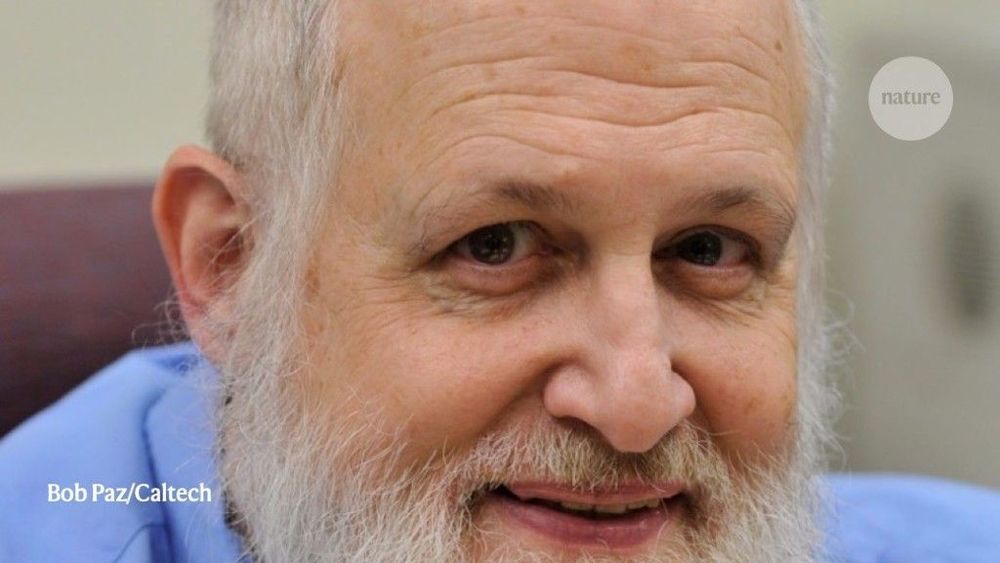

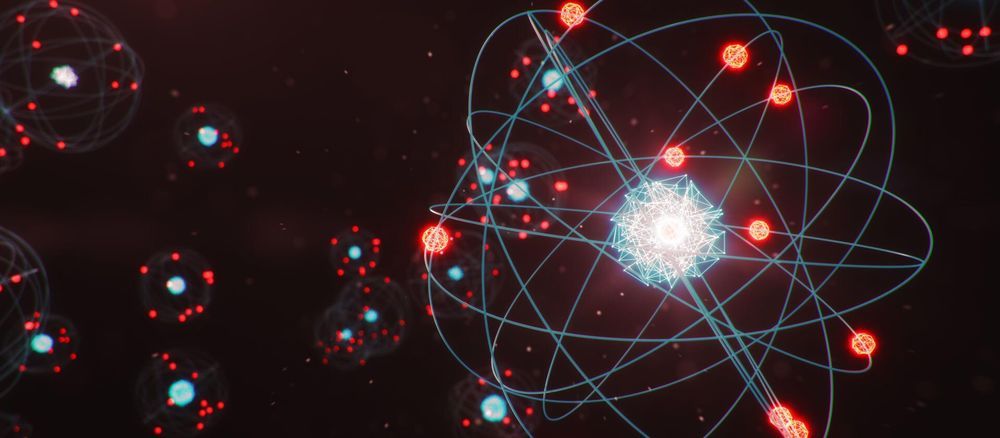
A nuclear physics professor from Florida International University was among a team of researchers that proposed something so out of this world, colleagues first hesitated to accept it was possible.
In 1993, they boldly predicted how the densest materials in the universe—known to exist only in rare neutron stars —could be made here on Earth. Ultimately, their research was published in Physical Review C, a leading academic journal focused on nuclear physics.
It spawned a wave of follow up research that in 2006 confirmed their prediction was true. For the tiniest sliver of a second, researchers at the Thomas Jefferson National Accelerator Facility in Virginia were able to briefly create the material that exists inside a neutron star.
Must watch astronomy events this month.
Top 5 Space Apps: https://www.secretsofuniverse.in/astronomy-apps/
How to watch the planets: https://www.secretsofuniverse.in/planet-roundup-august-2020/
The Secrets Of The Universe is a well known social media platform on Physics and Astronomy. We have over half a million followers on Facebook.
Our Online Presence
Facebook: https://www.facebook.com/secretsofuniverse/
Instagram: https://www.instagram.com/the_secrets_of_the_universe/
Website: www.secretsofuniverse.in
Twitter: https://twitter.com/cosmic_secrets
Pinterest: https://in.pinterest.com/thesecretsoftheuniverse/
Comet NEOWISE made July 2020 a memorable month. Here are the astronomy events that will occur in August 2020.
In a study published earlier this month, a team of theoretical physicists is claiming to have discovered the remnants of previous universes hidden within the leftover radiation from the Big Bang. Our universe is a vast collection of observable matter, like gas, dust, stars, etc., in addition to the ever-elusive dark matter and dark energy. In some sense, this universe is all we know, and even then, we can only directly study about 5% of it, leaving 95% a mystery that scientists are actively working to solve. However, this group of physicists is arguing that our universe isn’t alone; it’s just one in a long line of universes that are born, grow, and die. Among these scientists is mathematical physicist Roger Penrose, who worked closely with Stephen Hawking and currently is the Emeritus Rouse Ball Professor of Mathematics at Oxford University. Penrose and his collaborators follow a cosmological theory called conformal cyclic cosmology (CCC) in which universes, much like human beings, come into existence, expand, and then perish.

Statistical studies of the motions of millions of stars may reveal the subtle imprint of dark matter.
See more in Physics
Click to Expand.

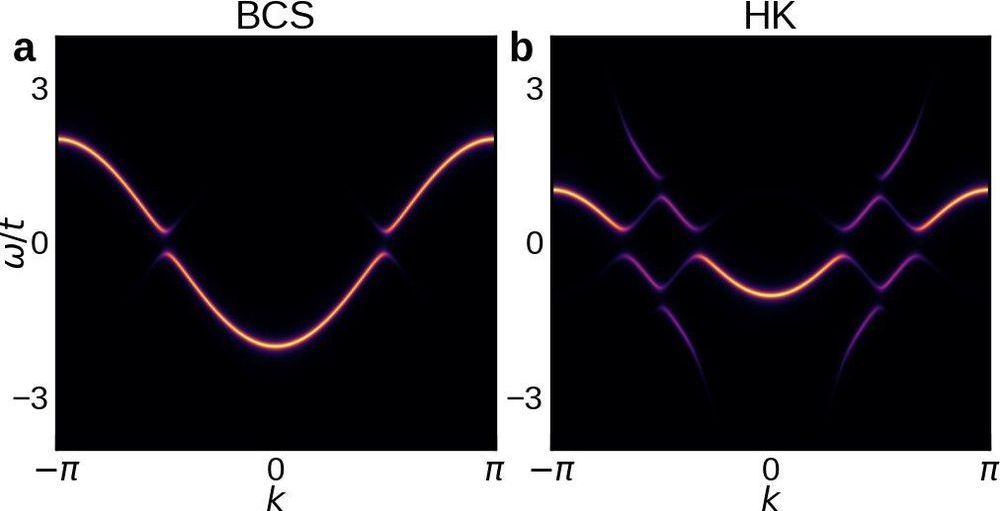
Forty-five years after superconductivity was first discovered in metals, the physics giving rise to it was finally explained in 1957 at the University of Illinois at Urbana-Champaign, in the Bardeen-Cooper-Schrieffer (BCS) theory of superconductivity.
Thirty years after that benchmark achievement, a new mystery confronted condensed matter physicists: the discovery in 1987 of copper-oxide or high-temperature superconductors. Now commonly known as the cuprates, this new class of materials demonstrated physics that fell squarely outside of BCS theory. The cuprates are insulators at room temperature, but transition to a superconducting phase at a much higher critical temperature than traditional BCS superconductors. (The cuprates’ critical temperature can be as high as 170 Kelvin—that’s −153.67°F—as opposed to the much lower critical temperature of 4 Kelvin—or −452.47°F—for mercury, a BCS superconductor.)
The discovery of high-temperature superconductors, now more than 30 years ago, seemed to promise that a host of new technologies were on the horizon. After all, the cuprates’ superconducting phase can be reached using liquid nitrogen as a coolant, instead of the far costlier and rare liquid helium required to cool BCS superconductors. But until the unusual and unexpected superconducting behavior of these insulators can be theoretically explained, that promise remains largely unfulfilled.
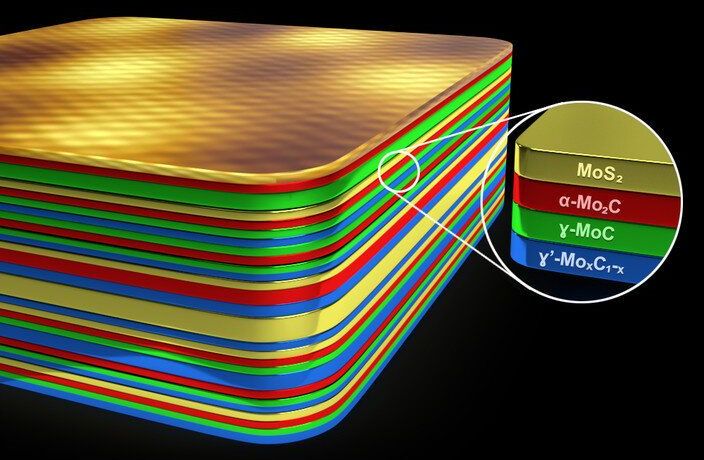
The possibility of achieving room temperature superconductivity took a tiny step forward with a recent discovery by a team of Penn State physicists and materials scientists.
The surprising discovery involved layering a two-dimensional material called molybdenum sulfide with another material called molybdenum carbide. Molybdenum carbide is a known superconductor—electrons can flow through the material without any resistance. Even the best of metals, such as silver or copper, lose energy through heat. This loss makes long-distance transmission of electricity more costly.
“Superconductivity occurs at very low temperatures, close to absolute zero or 0 Kelvin,” said Mauricio Terrones, corresponding author on a paper in Proceedings of the National Academy of Sciences published this week. “The alpha phase of Moly carbide is superconducting at 4 Kelvin.”

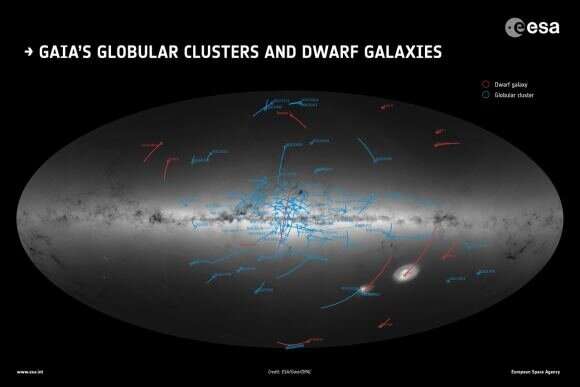
It is a widely accepted theory today that when the first stars formed in our universe approximately 13 billion years ago, they quickly came together to form globular clusters. These clusters then coalesced to others to form the first galaxies, which have been growing through mergers and evolving ever since. For this reason, astronomers have long suspected that the oldest stars in the universe are to be found in globular clusters.
The study of stars in these clusters is therefore a means of determining the age of the universe, which is still subject to some guesswork. In this vein, an international team of astronomers and cosmologists recently conducted a study of globular clusters in order to infer the age of the universe. Their results indicate that the universe is about 13.35 billion years old, a result that could help astronomers learn more about the expansion of the cosmos.
Their study, titled “Inferring the Age of the Universe with Globular Clusters,” recently appeared online and was submitted for consideration to the Journal of Cosmology and Astroparticle Physics. The study was led by David Valcin, a predoctoral researcher from the Institute of Cosmos Sciences at the University of Barcelona (ICCUB), who was joined by a team from France, Spain, and the US.